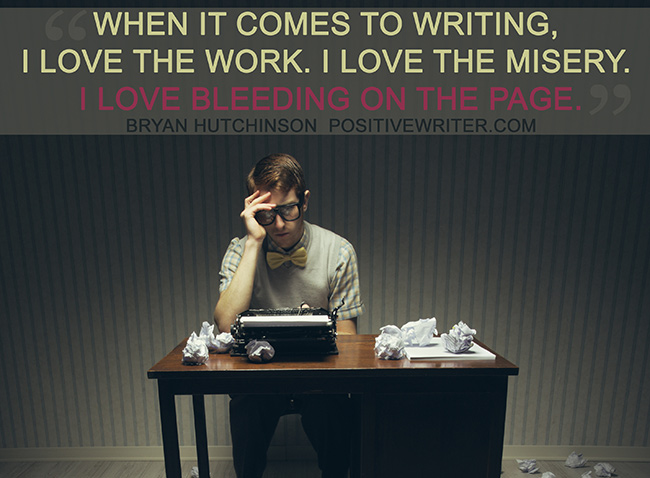A lot of people are finding out that following their passion is fraught with difficulty, pain and suffering, and sometimes it’s unbearable. But what if they’re mistaken and it’s not their passion that they are following?
Whatever your dream is, that’s your passion. Right? Not so fast. That’s not always the case and if you’re someone who has fallen for this trap it could be the reason you are miserably following the wrong path.

Then again, maybe you have found your passion. In that case this post will likely be irrelevant to you. Unless you’re in the trap and merely think you’ve found your passion.
Achieving your dream
Common wisdom dictates that following your passion is living your dream.
But what is your dream? What’s so special about it? And, finally, what are you willing to struggle through to achieve it?
Those are three very important questions and if you can answer all three of them you may be able to determine if you’re following your passion or in the trap. We’ll go over the questions together in a moment.
One of my dreams was mistaken for my passion
My favorite hobby is playing pool (billiards). I don’t play it as much as I used to and that’s okay. When I do get the opportunity to play, I enjoy the sheer fun of hitting the balls around and competing with friends for bragging rights.
It wasn’t always that way.
When I was about 16 years old I discovered I had a natural talent for playing pool and, with very little actual practice other than playing with some friends, I was soon winning local house tournaments by the age of 17. It was exhilarating and a lot of fun not knowing what I was doing, but doing it exceptionally well.
It’s while winning those local tournaments that things changed and the fun got zapped right out of the game I had been growing to love.
Winning those tournaments made me start to have dreams of grandeur of winning larger, more important tournaments with big cash prizes and big trophies to match. And seasoned players noticed me and began filling my head with the belief that I could make a career of playing pool.
Maybe. (You know there’s always a maybe.)
If I practiced enough, competed with the best, became fully dedicated, and basically breathed pool day in and day out. I might make it, maybe.
It sounded great and for a while I did exactly what was suggested. I ate, drank and breathed pool and only after a few short years I was playing on the Master’s tour. It wasn’t long before I ranked as high as 3rd overall on the tour.
But there was a problem.
I loved playing pool and I even loved competing, but what I didn’t love was all the time it was taking from my daily life and all of the things I had to give up in order to play at a competitive level. 3rd on the tour with all the recognition that came with it was exhilarating and it’s what I thought I wanted, but it wasn’t enough. I’d have to get even better if I wanted to turn playing pool into a real career, and in order to do that I’d have to give up even more and more.
How far was I willing to go?
How far are you willing to go for a dream?
It’s great to have a dream about standing on the podium in glory and lining your pockets with prize money, but that’s the dream, the end result. There’s another part of the dream, though, it’s the part you don’t actually enjoy if you’re not following your passion.
The part I’m talking about is giving up major parts of your life to pursue your dream, spending every waking hour practicing, striving and struggling to get just a little bit better and doing everything and anything that is absolutely necessary to achieve victory.
In my dream it was the crowning glory that I had visualized and not the hard work and sacrifices.
This is where all the old clichés should be inserted, such as “Buck up!” – “Stick with it.” – “Put your nose to the grindstone.” and “Don’t be a quitter.”
I quit.
One day during a league tournament, after my last match, I put my pool cue in its leather case, walked over to our team captain and said “I’m done.”
Just like that. Really.
I never looked back. I was 31 years old and I had spent more than a decade chasing the wrong dream until I finally realized that it wasn’t my passion. Living in pool halls the rest of my life wasn’t what I wanted and I wasn’t willing to struggle another minute for it.
Friends and fellow players thought I was crazy. Many of them told me I was a fool for wasting my talent, that I’m a quitter, and, of course, insisted that if I had just dedicated myself more and worked even harder I would have “made it”.
Their taunts remind me of a Rocky movie, urging me to get back in the ring and go for it! But that’s the thing…
Passion is not always what movies make it out to be, especially if you’re going after the wrong dream.
Playing pool and winning major championships is not my passion. It may have been one of my dreams, but it was never my passion. I got caught in the deadly trap of going after the wrong dream.
Why is the trap deadly?
Because of the years of life it can steal from you. Don’t get me wrong, I learned many valuable lessons I would not have learned otherwise and I do believe things happen for a reason. Still, had I considered all of the ramifications of what was involved in becoming a pool champion when I started, I might have reconsidered.
What’s your passion?
What I’ve discovered is this:
Passion is found in the struggles you can’t live without.
(Tweet that if you like.)
I don’t agree with the idea that you should struggle through anything and everything simply because of a dream.
That is, if your dream is only the crowning glory, e.g. winning a world championship, making partner in a law firm, or publishing a bestselling book, and not the extraordinary effort it takes to achieve it.
Passion is when you love doing something for the sake of doing it, regardless of what it may or may not lead to. In pool I was striving for a result, but what I had to do to get said result was killing me inside.
3 very important questions about your dream:
Most of us dream wonderful dreams of grandeur and that’s okay, but it’s imperative to know if the dream your striving for is your passion or not, and these three questions may help.
1) What is your dream?
Identify it and if you have more than one, identify them all.
It’s perfectly okay to dream of becoming an astronaut and being the first person to walk on Mars. That was one of my childhood dreams.
2) What’s so special about it?
Consider writing out your answer. If you have more than one dream, write your answer for each of them.
My dream about becoming an astronaut was special because I’d get to be the first person to walk on Mars.
3) What are you willing to struggle through to achieve it and how far are you willing to go?
This is the most important question, because the answer will help you realize whether a dream is worth pursuing.
Let’s say you dream of becoming an astronaut. Are you willing to get all the necessary education, join the military, become an elite pilot, go to more school, endure more years of training, and then finally apply to NASA? (I’m sure I’m missing a lot of steps in there, but you get the picture.)
If you answer a resounding, even excited, YES! to all of those questions then your dream of becoming an astronaut is probably your passion.
In my case, I’m terribly scared of heights and I can barely board a plane without major drugs for Pete’s sake. So no, my dream of walking on Mars was only a dream, not my passion. And, what’s more important, is that I have absolutely no interest in doing all that other stuff I listed above to become an astronaut.
I’m a writer. My passion is the process of writing.
I’ve written page after page for days and weeks, and many I tucked away never to be used or seen again. And, that’s okay. I don’t mind it one bit. I’ve published books that have become bestsellers and I’ve published books that have barely made their money back (some haven’t), and that’s okay, too.
When it comes to writing, I love the work. I love the misery. I love bleeding on the page. I love overcoming writer’s doubt. Those are struggles I can’t live without. (However, when you’re following your true passion what other people identify as “struggles” might not feel like struggling to you.)
I also love the joy of writing, writing with abandon and the satisfaction of finishing, and then starting all over again.
My dream with regard to writing is to write about my experiences and lessons learned and hopefully help a few people along the way. I’m not the best writer in the world, far from it (way far), and I don’t have any desire to become the best, but I look forward to waking up each morning and working at improving every day for the rest of my life.
That, at least to me, is passion. Doing what I do no matter what the challenges are or how much I have to struggle, or how heart wrenching it is to be rejected and criticized, and even if there is not a single scratch of gold at the end of the rainbow. I love it anyway.
Do you want to know a little secret? I’ve already found gold. In writing…

When you love the process of whatever you do, the good, the bad and the ugly of it, I believe that’s when you’ve found your passion.
Have you found your passion?
Share in the comments.
Extra credit! In the comments use “scripturient” in a sentence. I’ll go first:
I’m a scripturient author, in the sense of having ‘a consuming passion to write’ and not ‘a violent desire to write’ as this word is occasionally interpreted to mean.
